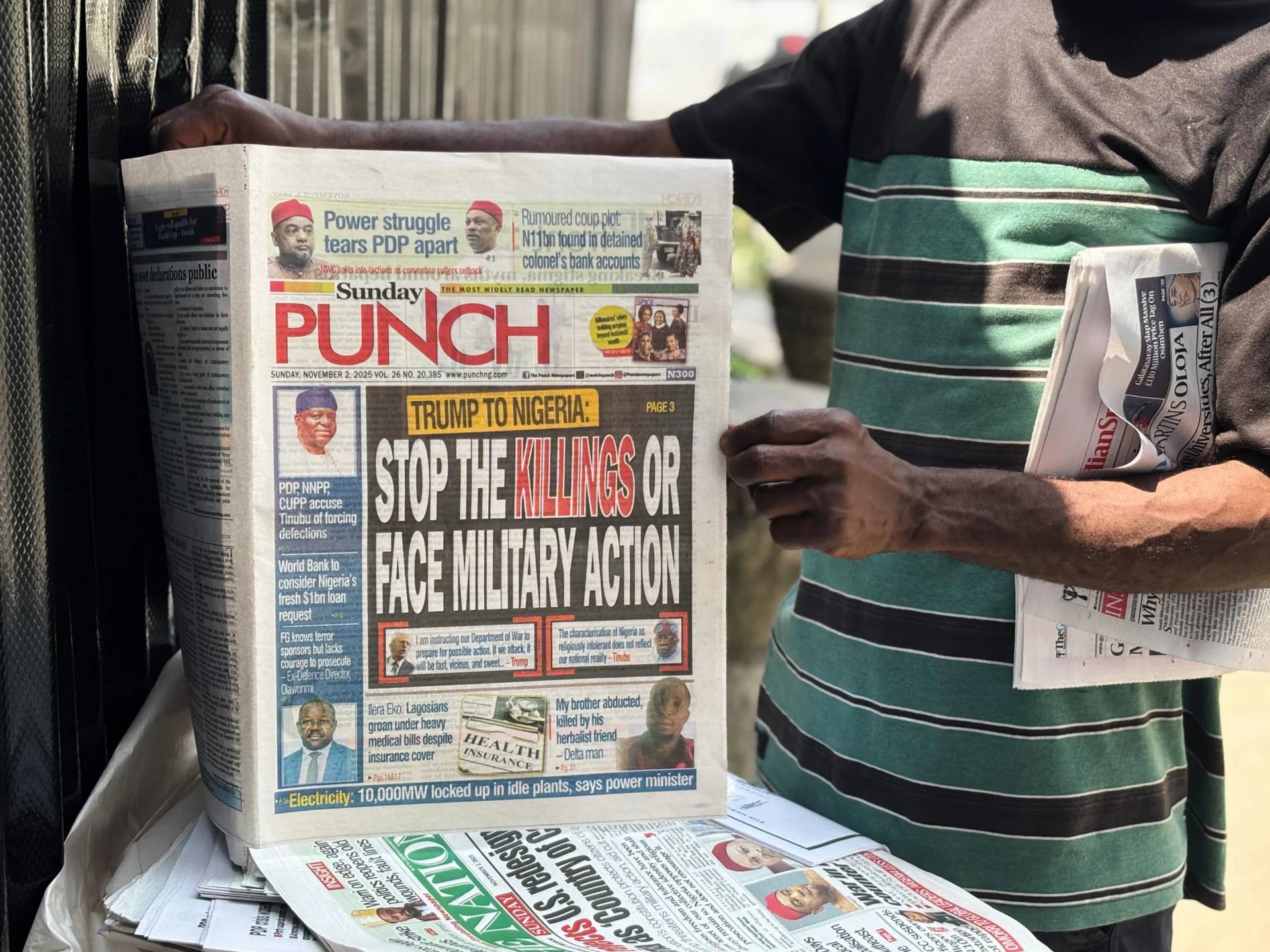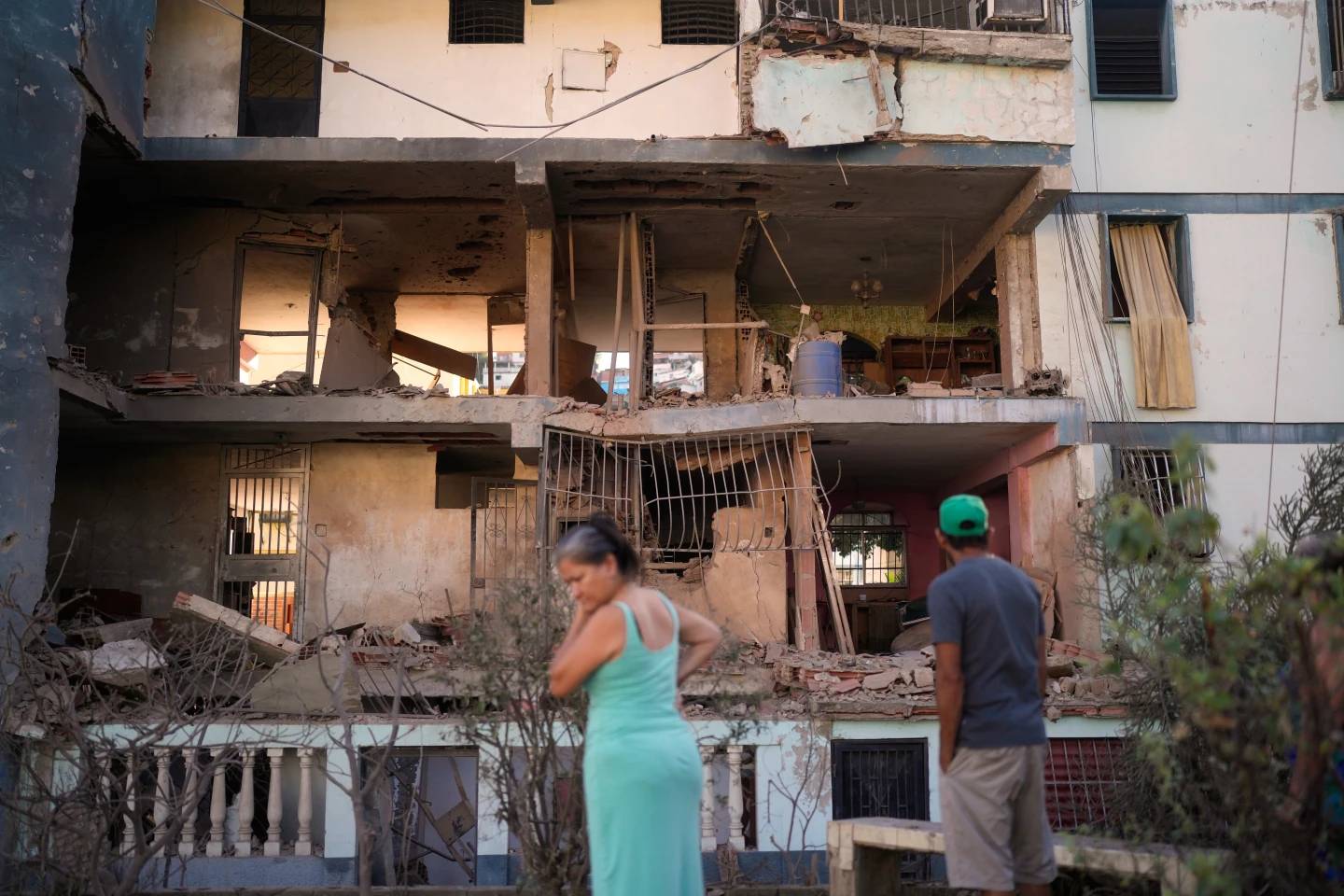NEW YORK — While Archbishop Ignatius Kaigama of Jos, Nigeria – this week appointed coadjutor archbishop of Abuja – was recently in the U.S. to highlight the plight of persecuted Christians to the international community, he also weighed in on a number of other concerns, including climate change and fighting government corruption.
In an interview with Crux, he spoke about the need for the government to better exercise its functions so that pastors are not reduced to social workers and also weighed in on last month’s high stakes sex abuse summit at the Vatican, where he said the whole Church must come together to bring about “justice” on the issue of sex abuse.
This is the second part of this two-part interview. Part one can be found here.
Crux: In your remarks at the United Nations, you mentioned climate change as a contributing factor to religious clashes in the region where droughts and deforestation have caused violent conflict between nomadic Christian farmers and Muslim herdsman. We’re coming up on the 4-year anniversary of the pope’s encyclical Laudato si’, wherein he calls for urgent attention to this issue. What’s been the response and effect of this document in Nigeria and throughout the African Church.
Kaigama: Well, it certainly was a news item that the pope is worried about the environment. I’m not sure everyone has read what the pope has said, and I’m not sure our government has taken time to delve into the details of what the encyclical entails. But the news is that the pope is certainly worried about the degrading of the environment and pollution, that we must respect the environment as we respect human life. The point was loudly and clearly made by the pope but how it has been absorbed and personalized is another thing.
The Church deals in blessings, prayers, exhortations, and preaching. When it comes to issues of security, weapons, and Boko Haram, etc., we cannot do this all. When it comes to the environment, what can we say, except to tell the government that this needs to be done. I think this crisis can be solved if the government takes note of it. Take the Sahara — it is there and you can convert it to a flourishing, beautiful land.
Speaking of the government, you’ve just had presidential elections in the country. What is the relationship between the Catholic Church and President Muhammadu Buhari, who was just re-elected?
We are not enemies, but we are not too friendly either. We have had good rapport with the president. I remember before he was elected, during his campaigns he requested to see members of the Catholic bishops’ conference. I was the president then, and I led the delegation. We had very useful dialogue and told him exactly how we felt about the nation. We asked him questions. “They say you are a religious bigot, is that true?” He gave us honest answers and we were quite satisfied.
When he became president, we went to see him again. We presented to him what we felt were issues of concern and since he hadn’t been in office long, we gave him some time to see what he could do. Two to three years later, we went again, this time demanding to know what has been achieved and pointing out areas of concern — areas of security, conflict between herdsmen and farmers, infrastructure, education, and poverty. We brought this all in a memo, and he was a gentleman about it. He listened and gave us good answers. But then, that’s where it ended. We even talked about inclusivity in government, and you don’t just take people from one particular religion or region. We have six geo-political zones, and they all should feel adequately represented. We reminded him that some of his appointments were lopsided, but I don’t think much was done.
When we were in Rome for the ad limina visits last year, we received the sad news of the attack of the herdsman on a community where two priests were killed with seventeen parishioners at morning Mass. They were just shot by a so-called “unknown gunman.” We were quite upset and during that period, we sent out a collective message as bishops that was quite strong telling him that if he could not guarantee the safety and security of our people and our church, he should better resign. I’m not sure he was too happy.
We want to see government succeed. I’m a pastor and a priest, and I don’t want to be converted into a social worker. But right now, I am a priest, I am a pastor of souls, and some time I feel as if I am more a social worker than pastor of souls. That is the duty of government to take care of the needs of the people and to allow me time to focus on the salvation of souls.
Last month, a fellow Nigerian — Sister Veronica Openibo — made headlines at the Vatican’s sex abuse summit when she said she knew of cases of abuse in Nigeria going back to the 1990s. What were your reactions to her remarks and then what do you believe the lessons from the summit are for your own country?
I’m not sure what fact she has. It’s important that we know. I ask why those facts haven’t been presented to us at home. I have been the president of the bishops’ conference for two terms, and we initiated meetings with male and female religious superiors with bishops every two years so we can meet collectively and discuss freely the situation in the Church and what we can do.
I thought that such a weighty matter should have been touched at home, and the way it came out is not something I’ve heard before. I can’t say that all the bishops and priests are saints in Nigeria but I don’t want to generalize. The tendency is for isolated cases to look like that they’re the norm.
Africa has 54 countries and just to say that all Africans do this is terribly offensive. I don’t doubt that there are certainly abuses. I would expect this sister to have facts and information for us. Let’s hope that she will come back home and give us the facts, because I’m sure the bishops will willingly take it on.
The summit was absolutely necessary. We need to wake up. We need to reclaim our credibility. If a few Catholic priests around the world commit a grievous offense, and all of us are made to suffer for that, it hurts us all. We have to see where the problems are and tackle them head on, and I think it’s important that the bishops met in Rome under the leadership of His Holiness Pope Francis. Justice must be done.
















